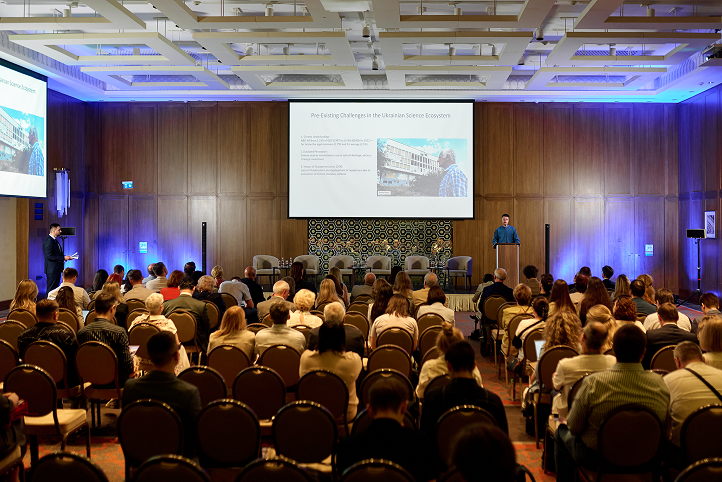

Citizen Science in Ukraine: Olena Kozak's Blog
05.09.23
Olena Kozak is a Ph.D. in biological sciences and teaches in the Ecology Department at the National University of "Kyiv-Mohyla Academy." She is interested in biodiversity assessment, invasive species expansion, successions, and climate change. She also has experience collaborating with NGOs in education for sustainable development. Furthermore, she believes education is a powerful driver of positive change, and that it shapes society, behavior, and development. Since March 2023, the scientist has joined Science at Risk. Read about her role in the project and the work of the research group she is part of in the blog.
In Science at Risk, I have joined the science communication direction. Communication is crucial for spreading awareness, engaging, and mobilizing people for collective actions. In war conditions, communication has been instrumental in sustaining science in Ukraine. In the project, we are preparing a white paper on "Application of Citizen Science in War, Crises, and Disasters."
Our analytical work will be based on the following:
— Analysis of domestic and international practices of using citizen science in war and other crises.
— Public surveys to identify values that will help involve Ukrainians in citizen science.
— In-depth interviews with expert practitioners who use citizen science tools.
We are still collecting data for our research, but some interesting and significant information is already emerging. Citizen science holds tremendous potential, which, unfortunately, is only partially utilized in Ukraine. There are many initiatives in the field of natural sciences, but other fields rarely utilize citizen science prctices.The reason for this could be both a lack of awareness among scientists about the possibilities of citizen science, and that citizen science may not be applicable in some scientific fields.
Most commonly in Ukraine, the public participates in data collection for biodiversity, especially in global initiatives like iNaturalist and eBird. However, the national platform UkrBin remains underutilized. It's worth noting that there are already some examples of public involvement in distributed computing in astronomy and biology, where citizens contribute their computer power to solve scientific tasks. The public in Ukraine is interested in participating in citizen science initiatives. Motivations often include gaining new knowledge and experience and engaging in quality leisure. Some individuals feel responsible for their country's development and aim to join scientific projects with this goal in mind.
At the same time, certain obstacles and stereotypes hinder the development of citizen science. Among scientists, there's a common misconception of the complexity and challenges of using citizen science. For instance, many researchers believe citizen science tools must include sophisticated technical solutions, such as mobile applications and large databases, for it to make sense. Or that collecting high-quality data is impossible through citizen science.
However, in practice it all depends on the scientist themself, if they have interest in engaging the public. Again, communication is crucial, the ability to explain and convey the algorithm of collecting or analyzing data. You don’t necessary need massive resources (like a team of programmers) and technical solutions in the form of programs, applications, databases, etc., to start a citizen science initiative. Data can be collected even on social media, and in Ukraine, such practices exist – for instance, specialized groups like "Flora of Ukraine," "Fungi of Ukraine," "Dolphins of the Black and Azov Seas," and others.
In many countries, including the USA and EU states, dedicated platforms exist where scientists can create citizen science projects, and the public can join initiatives according to their interests and preferences. Such media may provide not only technical solutions but also simplified task descriptions and contacts for data submission.
At the same time, it is essential to provide informational support and raise awareness about the possibilities of applying citizen science in various fields.
As a result of this work, we plan to create a database of best practices in Ukraine and the world, which will serve as a positive driver for the development of citizen science in Ukraine. In the long run, it would also be great to establish a citizen science platform in Ukraine, similar to those in other countries, where scientists and the public could interact and assist each other in achieving their goals.

